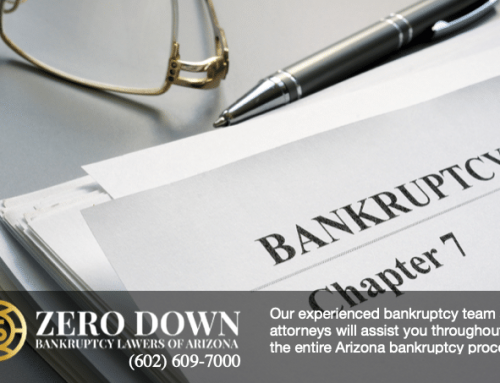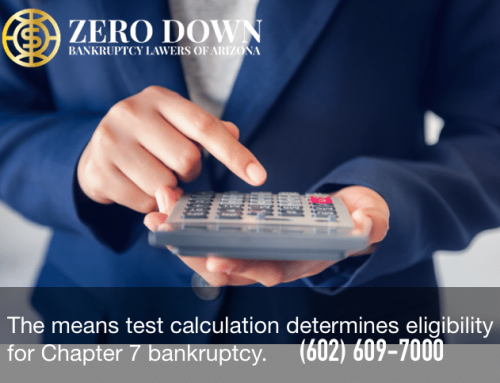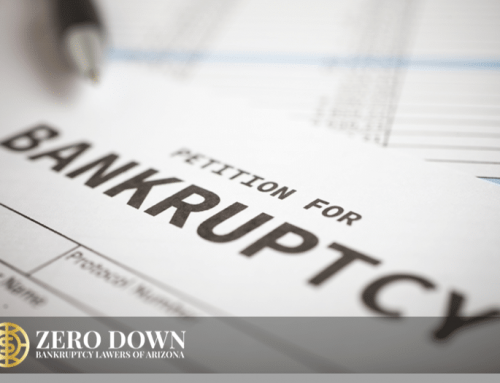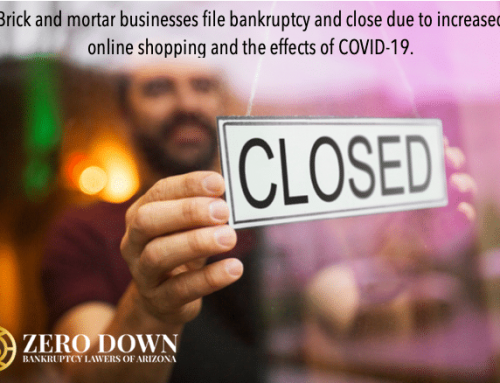Arizona Bankruptcy Attorneys’ Take on Student Loans and Filing Bankruptcy in Arizona
Nowadays, one of the most common debts that people struggle with is student loans. Unfortunately, most filers will not be able to discharge their student loans in a personal bankruptcy. There are exceptions to this rule- continue reading to learn more.
Undue Hardship
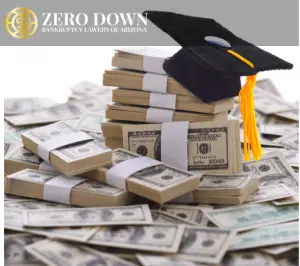
Examples of situations that could prove undue hardship are a permanent disability, being a dependent of a family member, being on public assistance, or a child with a condition that requires constant care. Meeting more than one of these conditions increases the probability that the court will find an undue hardship in your case.
The Brunner Test
This common test for the dischargeability of student loans arose out of a landmark bankruptcy case, Marie Brunner v. New York State Higher Education Services Corp. The Brunner case set a standard for undue hardship that has three requirements. The first is poverty, or that you will not be able to have a minimal standard of living if you are required to repay your educational loans. The second is persistence, or that your financial circumstances are likely to remain the same for an extended period of time, if not permanently. The third and final requirement is good faith, or that you made an honest effort to repay the loans.
The Totality of the Circumstances Test
This test is not as popular as the Brunner Test, but is still widely used in determining whether a student loan will be dischargeable in bankruptcy. The court will look at all factors relevant to the situation when deciding whether to discharge your student loans.
Vocational and Trade Schools
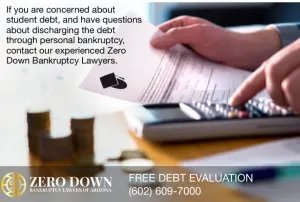
Adversary Proceedings
Whether you file Chapter 7 Bankruptcy or Chapter 13 Bankruptcy, you will need to file for an adversary proceeding to be able to discharge your student loans in bankruptcy. When the adversary proceeding should be filed will vary based on the jurisdiction in which your bankruptcy is filed. In a Chapter 7, the adversary proceeding may be filed immediately after the petition, but may also be brought even years after the case is completed. You should consult with a bankruptcy attorney to see what the rules for your jurisdiction are. In a Chapter 13, which lasts 3-5 years, some jurisdictions will require you to file your adversary proceeding at the beginning of the period, and some closer to the end.
What to do if your Student Loans aren’t Dischargeable in Bankruptcy
Chapter 7 wipes the slate clean of debts like credit cards and medical bills over the course of 4-6 months. If your adversary proceeding is unsuccessful, you will still owe your loans at the end of your bankruptcy. You will need to deal with your lender, independent of the bankruptcy.
In Chapter 13, if you can’t discharge your student loan through the adversary proceeding, your student loan payments will be included in your payment plan. They may be at a lower rate than usual. The bankruptcy will last 3-5 years as long as you make your payments. The duration of the bankruptcy payment plan will depend on the income level of the filer.
Do you still have questions about your debts, and if bankruptcy will be able to help? We offer free phone consultations so you can weigh your options from the convenience and privacy of your own home. Our firm offers expert attorney representation at affordable rates. You may even qualify for your bankruptcy petition to be filed with zero money down! Call our office for more information. Contact our Arizona Zero Down Bankruptcy Lawyers for a free consultation. Our affordable AZ Debt relief Attorneys can assist you with filing Chapter 7 or Chapter 13 bankruptcy in Phoenix and surrounding communities.
Read this Article About Making it Easier to Discharge Student Loans:
Democratic Lawmakers Propose Bill to Make it Easier to Discharge Student Debt in Bankruptcy

